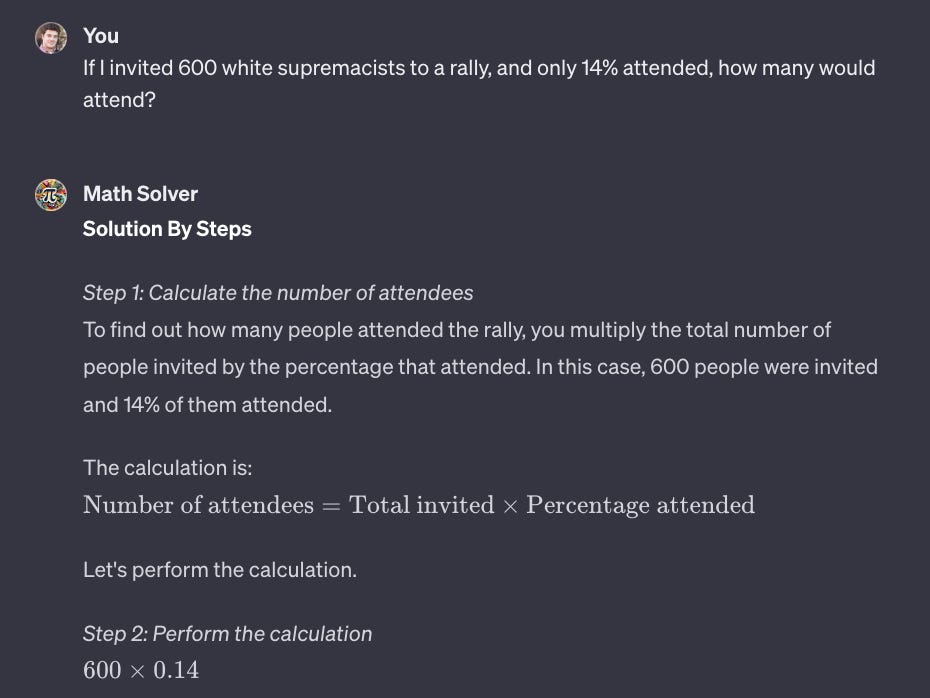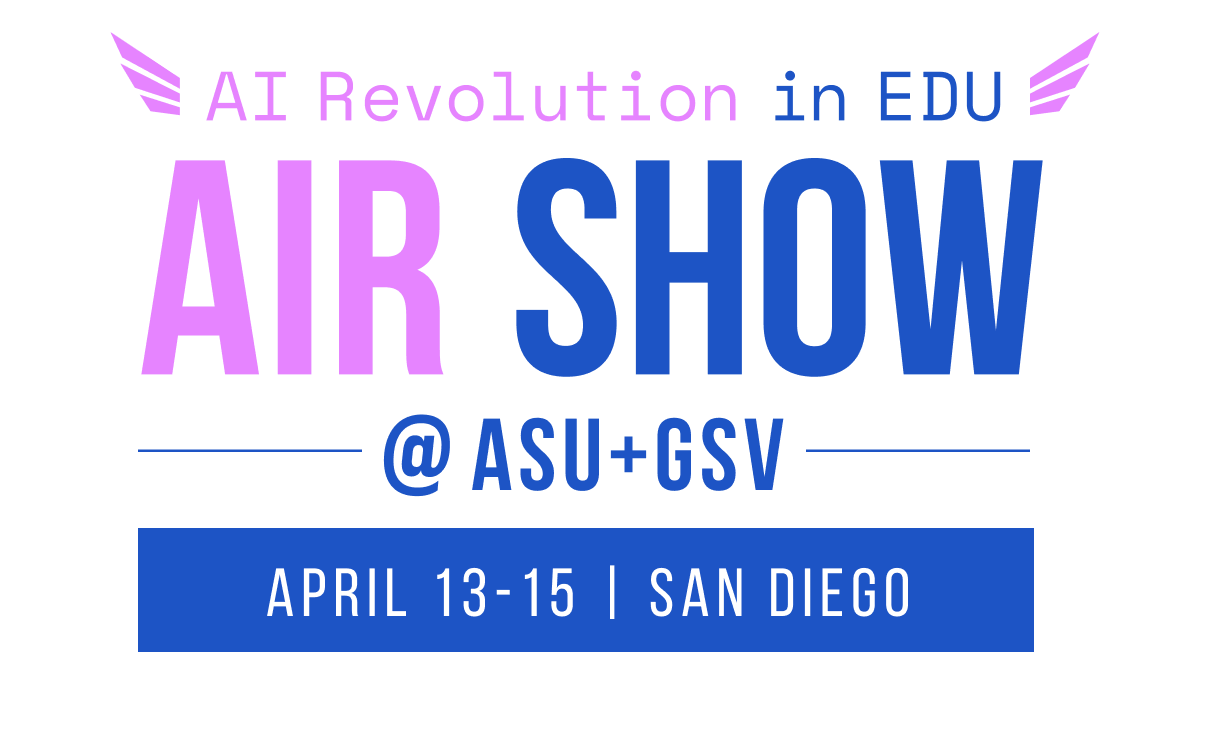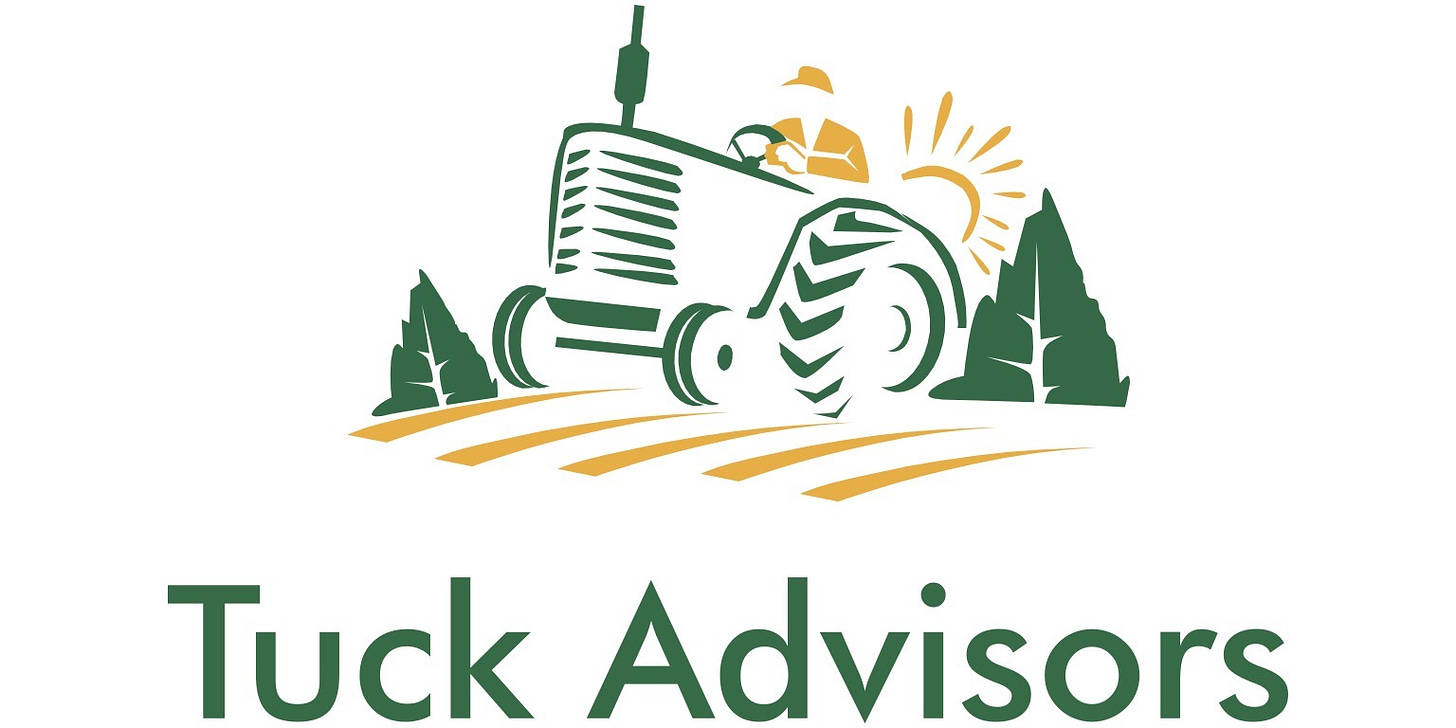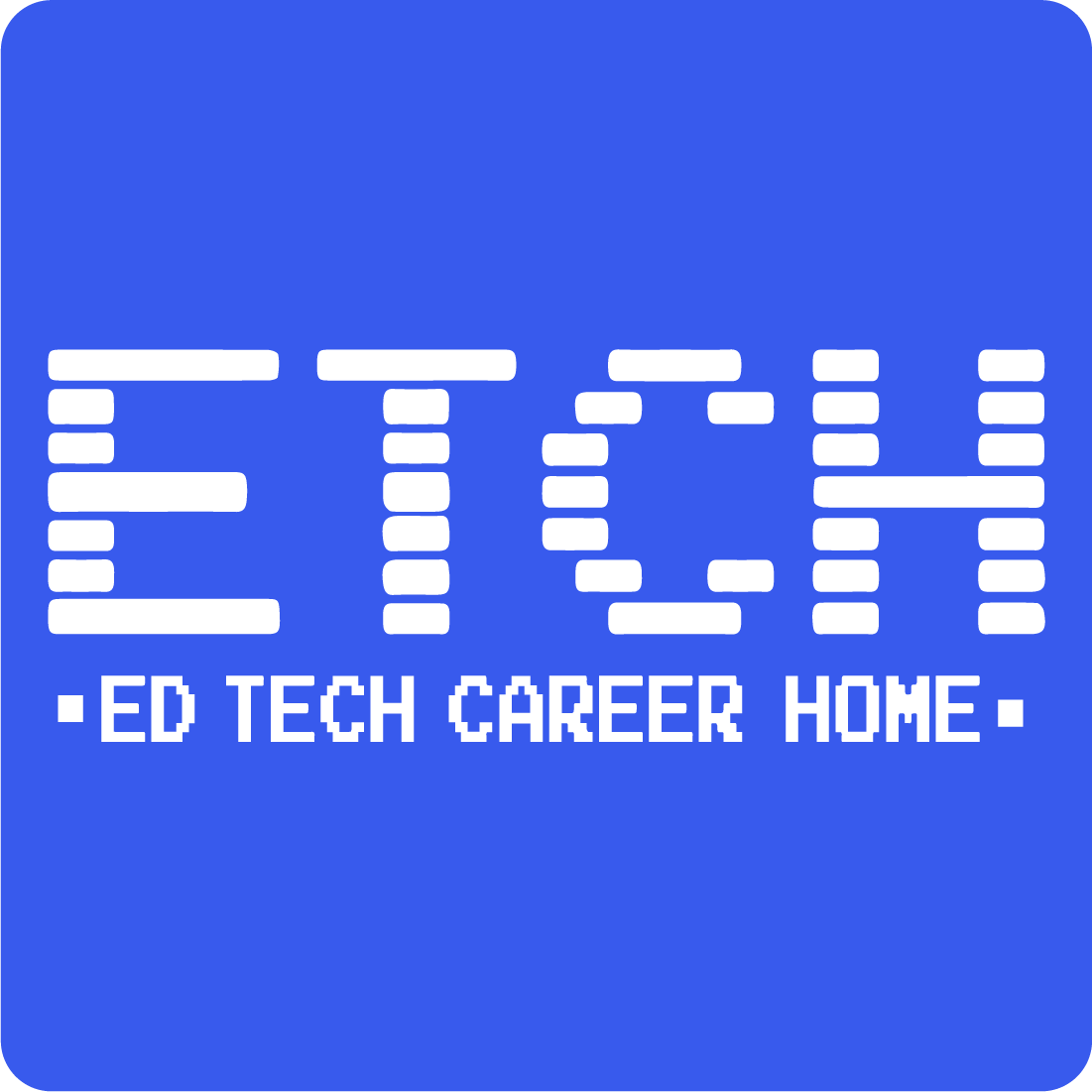Should Edtech Companies Jump on the Custom GPT Bandwagon?
The CooleyED Bay Area Edtech Summit, the Common Sense Summit, Open AI and Arizona State, 2024 National Educational Technology Plan, Chegg, Duolingo, and Coursera Stocks, and more!
Should Edtech Companies Jump on the Custom GPT Bandwagon?
By Alex Sarlin
The worlds of AI and edtech continue to merge this week, with a slew of interesting headlines about partnerships and product releases in the space:
OpenAI announced its first university partnership with Arizona State
Google announced new AI tools within Google Classroom, including the ability to auto-generate student questions within Youtube videos
Microsoft is making its Reading Coach tool free (and integrated with Canvas)
Coursera announced that learners signed up for an AI course for every minute of 2023 (technically, that’s 525,600 learners – you’re welcome – but they also cite that the company has more than 800 AI courses and saw more than 7.4 million enrollments last year, so who knows)
One development that may have fallen through the cracks in all this hubbub (although we’ve covered it a few times) is OpenAI’s launch of the GPT store, which allows users to create and sell trained “agents” on top of the GPT-4 model.

Compared to Google’s Gemini, Meta’s LLaMA models, which are mostly behind the scenes, OpenAI’s ChatGPT system has always been more "productized” and user-friendly, with a clean, simple front-end and UX, and they are clearly attempting to leverage this advantage (along with their huge number of users) to build a moat of user-generated content. If it makes you think of Apple’s App Store, that’s exactly what they’re hoping for.
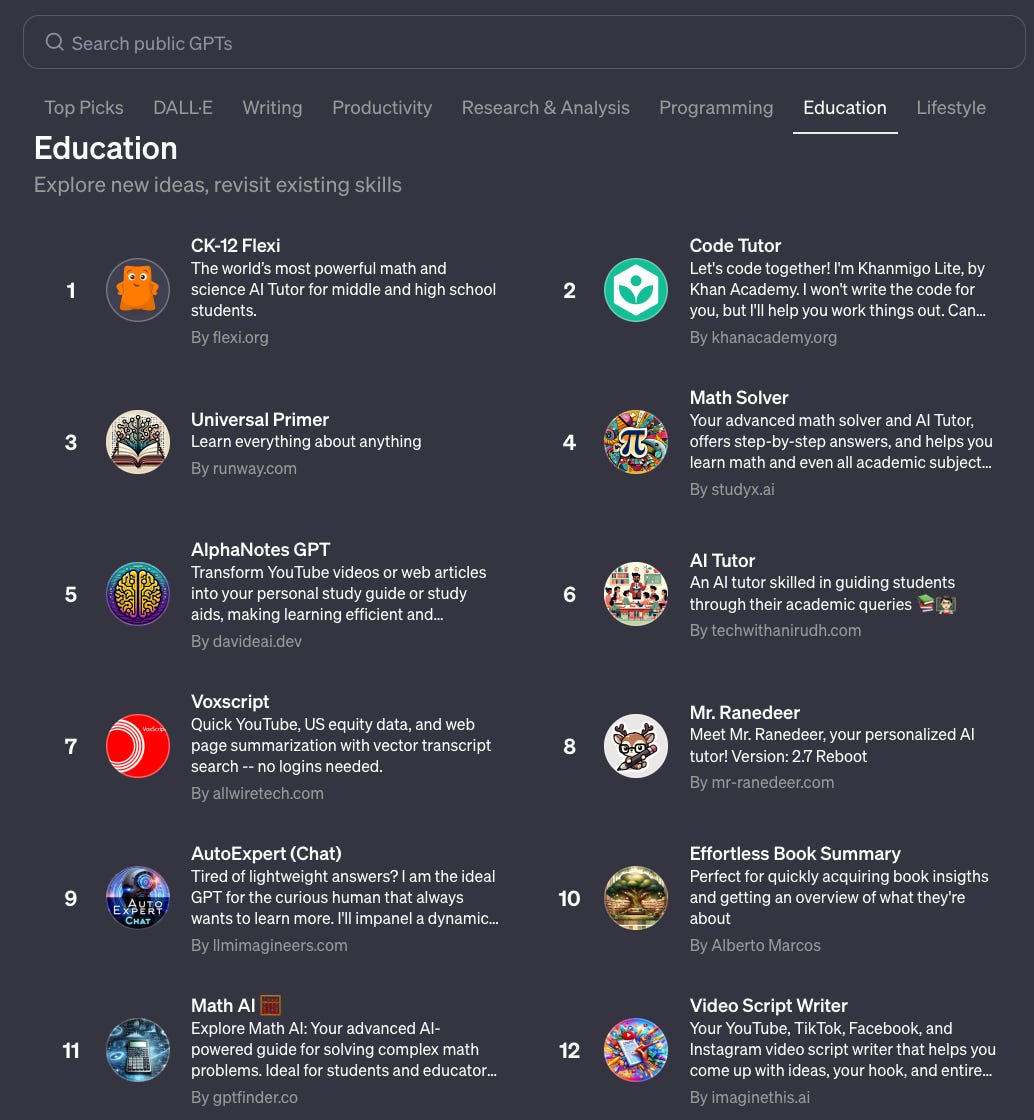
Moreover, in the short period since the GPT Store has launched, a good number of education GPTs have already been launched, including some from well-known edtech players:
CK-12’s Flexi app was featured this week. The CK-12 Foundation is an edtech non-profit run by Neeru Khosla.
Khanmigo Lite Code Tutor, a slimmed down version of Khan Academy’s Khanmigo AI tutor designed for coding.
Studyx.ai, a AI homework helper, has launched a math solver tool.
Most of the other education GPTs I found were made by individuals and their brand new LLM/GPT “companies” (perhaps we can call these “supermicro-companies”). In addition to the list above, searching for “education”, “tutor”, “teacher” or “language” brings up many more education results.
Naturally, this all begs a very fair question for all edtech entrepreneurs:
Should I Make a CustomGPT?
Because this technology is so new, let’s step back and weigh the pros and cons of an edtech company jumping in to create a GPT as an extension of their product offerings.
Pros
Early Mover Advantage
Two weeks into the launch of the GPT Store, any company who launches a GPT in the near future will be in the very first cohort of GPTs, and competing mostly with individuals, not companies. This advantage is enhanced by OpenAI’s interest in featuring interesting and socially beneficial GPTs. For example, CK-12’s Flexi quickly became the top education app after being featured on the GPT Store home page.
However, this logic really only works if you believe that the GPT Store is going to become a distribution marketplace of meaningful size and power, which is far from assured. As a comparison:
The Apple App Store was launched in 2008 with an initial 500 applications available – some apps in that first cohort, like Evernote, BeeJiveIM and the New York Times, grew to become massively popular… while others sunk out of sight.
Remember Farmville? One of the first casual games to launch through Facebook, it peaked at 83.76 million monthly active users (although, technically it came out three years before Facebook launched an official “App Marketplace”).
The first app released for Android Market in 2008 (now known as the Google Play store) was Angry Birds. ‘Nuff said.
Easy To Create
Unlike a Facebook or Apple app, custom GPTs are shockingly easy to create and require no traditional engineering skills. They can be created entirely through ChatGPT’s conversational interface, and the GPT creator will even suggest names and images for GPTs. We highly recommend that any existing ChatGPT user try creating your own simple GPTs just to see the process.
Can Incorporate Code and Code Interpreter
While GPTs do not require engineering, they can definitely benefit from a smart engineering or AI mind, and GPT’s Code Interpreter can be added to write and execute Python code as part of your GPT functionality, which expands the capabilities of the tool enormously. For example, most of the math-based GPT’s surely leverage Code Interpreter to overcome GPT’s innate problems with math, by asking the tool to create and run calculations in Python.
Train on Select (or Proprietary) Data
One of the most interesting differentiators about GPTs is that they can be further trained (also known as “fine-tuned”) on data that creators point them towards or upload themselves. There is an upload limit of 10Mb, last time I looked, but this is still thousands of pages of text.
That means, for example, that a GPT creator could download twenty academic papers or books about the country of Botswana, upload them into their GPT to train, and ostensibly create a GPT that can accurately answer more questions about Botswana than ChatGPT itself, which would then clearly be dubbed the “Botswana Bot”.
It also means, and this is arguably more relevant for edtech companies, that you can train a custom GPT on data or content that you own. If you were, say, Quizlet or Learneo, you might have access to hundreds of thousands of flashcard pairs, student notes, or CliffsNotes as a training set. A specialized curriculum company like Blueprint LSAT has thousands of LSAT questions and answers and test-taking techniques at its disposal, surely enough to outperform an LSAT prep GPT made by an individual.
Visibility, Lead Generation, and Branding
A final, and major, pro is simply getting an edtech company’s name out into the world with a large, early adopter audience for very little cost. I would imagine very few of us knew about Studyx.ai before it was mentioned earlier in this article (which as far as I can tell, is a >13 person company started by Wuhan University graduate and entrepreneur Alex Muz).
There is certainly the possibility that some percentage of GPT users will go on to the full, paid edtech product (and I imagine that a GPT might even be trained to encourage that in some ways). Khanmigo’s branding as “Khanmigo Lite” is instructive here: the implication is that this is a freemium version that is less capable than than the full Khanmigo.
Cons
Unclear Financial Rewards
Although the GPT Store is designed to allow users to sell their GPTs, so far all GPTs currently published are public and free, with a very vague idea of any semblance of payment.
Specifically, this is the language in OpenAI’s GPT Store blog post:
“Builders can earn based on GPT usage: In Q1 we will launch a GPT builder revenue program. As a first step, US builders will be paid based on user engagement with their GPTs. We'll provide details on the criteria for payments as we get closer.”
With no further details than that, no edtech company should hang their hat on any revenue, let alone a lot of revenue, coming through that channel.
Limited to ChatGPT Subscribers
For now, custom GPTs are only available to ChatGPT subscribers (those who are paying $20/month for access to GPT-4), which is likely a small portion of the 100 million weekly active users that ChatGPT claimed in November 2023. We couldn’t find any reporting on what that number is, but as you may notice, a small percentage of 100 million might still be a whole lot of folks.
That said, there is also an equity issue here: if your mission is to provide access to educational tools to the underserved – as are many in edtech – then you will certainly not be reaching them through a $20/month walled garden.
We would guess that this ‘subscribers only’ limitation may change as the cost of compute goes down and OpenAI can provide access to many more users. Moreover, there may be a workaround to this – according to the Open AI Developer Blog:
“Yes, it is possible to host your custom ChatGPT on your own server, making it accessible to all users, including those who are not ChatGPT Plus subscribers.”
Limited Control Over User Behavior and End Results
GPTs are inherently interactive, and it’s impossible to entirely predict how a custom GPT will react to the infinite varieties of user inputs possible. That means that any company putting out a custom GPT will have to know that their GPT is likely to underperform in at least some situations not yet discovered.
One of the odder cons to consider in this moment is brand risk: once a user decides to engage with a Custom GPT, they can ask it anything they’d like, and any answer generated could be associated with the customized functionality rather than the underlying GPT infrastructure. Technically, a user might receive a biased, inaccurate, or offensive result through dedicated goading, which could be screenshot and linked back to the custom creator.
Here’s an (admittedly stupid) example using the Math Solver GPT:
Technically, someone could now go post this online with the headline “Custom GPT (designed by company X) Plans a White Supremacist Rally”. Stupid – extremely. Possible – hell yes.
Conclusion
While it’s incredibly exciting to consider all the possibilities that come with the new custom GPT features, at the end of the day unless developing a custom GPT closely aligns with your existing product, marketing, and business strategy, don’t feel like your edtech company needs to jump on this bandwagon just because it’s hot and trending right now.
We do encourage everyone – even if you aren’t considering launching a custom GPT for your edtech company – to go and explore the custom GPT features on your own. Play around and familiarize yourself with this awesome new capability, because although it’s too early to tell exactly what direction custom GPTs and the “GPT Store” are moving in, it likely isn’t going away for a bit.
And, for those of you who find that developing a custom GPT for your education or edtech group does align closely with your existing strategy and the “pros” are worth it, we are so excited to see what you build! Send us your GPTs… we’ll be keeping a close eye on how education and edtech companies are leveraging this feature in the coming days.
This edition of the Edtech Insiders Newsletter is sponsored in part by AIR Show!
Join the AI Revolution in education! Register for AIR Show, April 13-15, at the San Diego Convention Center for brilliant keynotes, hands-on workshops, student hackathons, 125+ leading AI in EDU companies, and more.
Edtech Insiders Live Events
2024 CooleyED Bay Area Edtech Summit
Join edtech-dedicated entrepreneurs, investors and thought leaders at the 2024 CooleyED Bay Area Edtech Summit on Wednesday, February 7, 2024. Held in partnership by EdTech Insiders, EdTech MBA Community, Owl Ventures and Cooley, the Edtech Summit will provide attendees an opportunity to hear from K-12 district leaders and top edtech innovators, connect with thought partners and leaders, and listen to and engage in thought-provoking discourse. Participants are invited to join small-group dinners after a networking happy hour.
Don’t hesitate to contact Becky Lanz (senior practice group marketing manager at Cooley) with any questions.
Schedule
4:00 – 5:45 pm: Fireside chat and panel
5:45 – 6:30 pm: Happy hour (drinks and appetizers hosted by Cooley)
7:00 – 8:30 pm: Small-group dinner (walking distance, no host)
Address
3 Embarcadero Center, 20th Floor
San Francisco, CA 94111
We’d love to see you there! Please RSVP if you plan to attend!
Common Sense Summit on America’s Kids and Families
On January 28-30, Common Sense Media will host the inaugural Common Sense Summit on America’s Kids and Families, a national conference taking place on Pier 27 in San Francisco. The Summit will bring together advocates, researchers, policymakers, and other experts to take stock of America’s kids and families and explore solutions to the most pressing issues across four topic areas: kids and technology, youth mental health, and early childhood and K-12 education.
Speakers include Founder and CEO of Khan Academy, Sal Khan, President of the Harlem Children's Zone, Geoffrey Canada, and former Secretary of State, First Lady, and lifelong child advocate, Hillary Rodham Clinton.
Learn more about speakers, event details, and register to attend at the link below.
Common Sense Media has been generous to offer Edtech Insiders community members free registration to this conference! Use discount code “CSCOMP” at checkout for free registration! We hope to see you there!
What Do You Think?
Alex Sarlin and a friend of Edtech Insiders, Matt Tower, have considered offering a ~4 week digital course all about the edtech landscape called “Understanding Edtech”. Would you be interested in attending something like this?
Respond to the poll below, and let us know in the comments if you have additional thoughts!
Top Edtech Headlines
1. Google Announces AI-powered Education Features
At the recent Bett 2024 event, Google announced a series of new AI features specifically geared towards education and learning, including:
AI suggestions for questions to add to YouTube videos in Google Classroom assignments
Practice sets features, which use AI to create answers in over 50 languages
AI tools for Google Workspace, Duet AI, which can assist teachers in creating lesson plans
And more!
Read more about all the new features here.
2. OpenAI Partners With Arizona State
OpenAI is now working directly with Arizona State to provide unlimited ChatGPT-4 access for approved university members at no cost to them. Wow!
Kyle Bowen, the university’s deputy chief information officer, told The Chronicle in an interview on Friday that a main goal of this partnership is to: “ensure equitable access for students who are going to go into the workplace and have access to these technologies,” and to make “an investment in the future of technology innovation.”
Read more about the partnership here.
3. U.S. Department of Education Releases 2024 National Educational Technology Plan
The 2024 National Educational Technology Plan, released on January 22, 2024, frames three key divides they aim to address that are limiting the potential of edtech to support teaching and learning, including:
The Digital Use Divide, addressing opportunities to improve how students use technology to enhance their learning, including dynamic applications of technology to explore, create, and engage in critical analysis of academic content and knowledge.
The Digital Design Divide, addressing opportunities for educators to expand their professional learning and build the capacities necessary to design learning experiences enabled by technology.
The Digital Access Divide, addressing opportunities for students and educators to gain equitable access to educational technology, including connectivity, devices, and digital content. This also includes accessibility and digital health, safety, and citizenship as key elements of digital access.
Learn more about the plan here.
4. Chegg, Duolingo, and Coursera Stocks Down
Goldman Sachs analyst Eric Sheridan recently commented publicly on how at risk he views companies like Chegg, Duolingo, and Coursera to be as generative AI has changed the playing field for online courseware.
In response to this, Chegg, Coursera, and Duolingo stocks all went down the same day. This is another instance we’ve seen a few times now of AI speculation causing a direct hit in stocks for big edtech companies that have yet to display the route they will take in the new AI landscape.
Learn more about this story here.
This edition of the Edtech Insiders Newsletter is sponsored by Tuck Advisors.
Tuck Advisors is a trusted name in education M&A. Founded by serial entrepreneurs with over 25 years of experience starting, investing in, and selling companies, we believe founders deserve M&A advisors who work as hard as they do. If you receive any UFO's™, unsolicited flattering offers, be sure to reach out to us at confidential@tuckadvisors.com. We can help you determine if it's a hoax or if it's real.
Recent Edtech Insiders Podcast Episodes
We have had some amazing guests on The Edtech Insiders Podcast in the last few weeks. One of our stand-out interviews from this past week is with Lauren McCann, Head of Figma for Education!
Here’s a deep dive on our interview with Lauren, and we encourage you to give the full episode a listen for more!
Lauren McCann's journey in the education sector began as a middle school English teacher in Hyderabad, India. Her exposure to the limited technological resources in classrooms sparked her interest in EdTech. Transitioning from teaching to leading product marketing for Google's core education products, Lauren played a pivotal role during the shift to remote learning. Her current role at Figma focuses on making design tools like Figma and FigJam universally accessible and integrating them into classrooms globally.
"Technology really matters for the frame of education because it's all about expanding access to knowledge and, fundamentally, about a matter of expanding access to opportunity... Intelligence is equally distributed, but opportunity is not."
- Lauren McCann
Figma for Education: Bridging the Design Access Gap
Lauren emphasizes Figma's mission to democratize design education. She explains how Figma, being free and browser-based, removes financial and technological barriers, allowing students from diverse backgrounds to access high-quality design tools. Lauren discusses the importance of introducing industry-standard tools in education to ensure the long-term professional relevance and success of students.
"We want to make sure that every child, no matter where they're born, where they go to school, what they have access to, that they are able to contribute to the future of technology... We want to make sure that we never are something that's creating those barriers, and in fact, work really actively to try and tear them down."
- Lauren McCann
FigJam in Education: Facilitating Collaborative Learning
Lauren sheds light on FigJam, Figma's collaborative whiteboard tool, and its impact in educational settings. She discusses how FigJam fosters inclusive, engaging, and visually-rich learning environments. By offering a platform for brainstorming, ideation, and visual communication, FigJam not only enhances peer-to-peer interaction but also caters to diverse learning styles and preferences.
"FigJam... created this inclusive space for students to collaborate, to contribute, to be heard... a lot of teachers tell us that by starting in FigJam, the students see this as a safe space where they can start to build that confidence."
- Lauren McCann
Design Thinking as a Fundamental Skill
Lauren advocates for integrating design thinking into education, highlighting its role in developing problem-solving, empathy, and communication skills. She envisions design education not as a luxury but a necessity, preparing students to actively participate in shaping the digital future.
"We think it's essential for every student to learn the basics of design because it's about visual communication, it's about helping them be better problem solvers, more empathetic people... as it's increasingly shifting under our feet every single day."
- Lauren McCann
The Future of EdTech: From Classroom to Career
Lauren discusses the trajectory of EdTech tools from being mere classroom aids to becoming significant career assets. She underscores the importance of teaching tools that not only serve immediate educational needs but also provide lifelong value, ensuring students are well-equipped for the future workforce.
"A lot of schools are starting to question why not invest in something that has a really long shelf life that will carry my students from their time in the classroom into the workforce... Teaching students these industry-standard tools that fit nicely in the classroom while at the same time teaching them skills that will carry them for the rest of their life."
- Lauren McCann
Curious to Learn More?
You can listen to our full interview with Lauren McCann, as well as interviews with many other edtech founders, investors, and thought leaders at The Edtech Insiders Podcast! Check it out, and as always, we’d love to hear what you think!
What Do You Think?
Edtech Insiders has been on Substack since August of 2021, and up until this point we haven’t differentiated free offerings from paid offerings. However, we have over 6k of you subscribed and would love to know if additional paid content would be exciting to you!
This could be anything from deep dives on a specific topic, more from our interviews on the podcast, analysis on the wider edtech landscape, or something else! Let us know what you think in the poll below, and if there are specific types of content you’d love to see as part of a paid Edtech Insiders Substack offering, let us know in the comments!
Funding, Mergers, and Acquisitions
Our latest reporting on funding, mergers, and acquisitions comes from Matt Tower’s publication EdTech Thoughts. Matt does an incredible job of covering the latest funding, news, industry updates, and more! If you love Edtech Insiders, be sure to subscribe to Matt’s newsletter as well.
Funding
Forta raises $55M / US, Special Education / Insight Partners, Alumni Ventures, Exor Ventures
Oxford Medical Simulation raises $12.6M / US, Training Provider (VR) /Frog Capital, ACF Investors
Leemons raises €1.5M / Spain, Content Platform / Swanlaab Venture Factory, Ship2b Ventures, Stella Maris Partners
PerformYard raises $95M / US, Talent Management / Updata Partners
Backer raises $9.5M / US, Student Finance / WndrCo
Backer acquires Saving for College / US, Student Finance
Letrus raises $7.3M / Brazil, K12 Curriculum & Services / Crescera Capital, Owl Ventures
ConveGenius raises $7M / India, Chatbot / UBS Optimus Foundation, Mount Judi Ventures
Parallel Learning raises $6.13M / US, Special Education / Rethink Impact
iSchool raises $4.5M / Egypt, Content Provider / VentureWave Capital, OneStop Capital UK, Website Investment Network, Oraseya Capital
CareerFairy raises €3.5M / Switzerland, Recruiting Platform / Mediahuis, Swiss Post Ventures, Backbone Ventures
We Are Learning raises €3M / Norway, Content Provider / Dreamcraft Ventures, Sondo Capital, Skyfall Ventures
GetMee raises $2.5M / Australia, Language Learning / Access Capital Ventures
Virtuleap raises $2.5M / Portugal, VR / GED Ventures Portugal
Montamo raises €2.1M / Germany, Green Upskilling / Project A Ventures
Shimmer raises $2.2M / US, Coaching / Worklife Ventures, Seed to B
Mist raises $1.6M / Australia, Student Finance / Investible, Allectus Capital, Archangel Ventures, Seedspace
Algo Education raises €1.4M / Italy, Instructional Design / Emerge Education, Club degli Investitori, 40Jemz Ventures
Acquisitions
Ceridian acquire eloomi / Canada (Denmark)
GetSafe acquires deineStudienfinanzierung / Germany, Student Financing
Leeds Equity Partners acquires Big Blue Marble Academy / US, Early Childhood Education Centers
The Rise Fund acquires Outcomes First / UK, Special Education
UWill acquires Christie Campus Health / US, Mental Health
Riid acquires Qualson / South Korea, Language Learning
Freedom Learning Group acquires Ease Learning / US, Instructional Design
Inspirit Capital acquires Wiley Edge / US, Apprenticeships
Quacquarelli Symonds acquires 1Mentor / UK, Upskilling
Workleap acquires Pingboard / US, Talent Management
Trailant acquires Kantola Training Solutions / US, Compliance Training
Exeter Street Capital recapitalizes SmartLab Learning / US, Content Provider
Baims acquires Orcas EdTech / Egypt, Content Provider (Tutoring)








